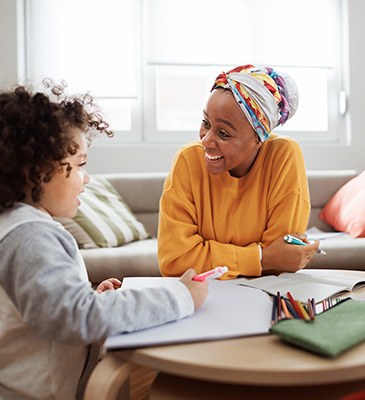Expand your ability to communicate meaningfully with young children! Children learn best when the adults around them communicate in ways that are nurturing, culturally affirming, and connected to how children learn. Discover how intentional communication practices have a cascading effect on children's positive learning outcomes and lifelong behaviors. This course distinguishes effective communication techniques designed to support children's relationship skills and early language and literacy skill development. (2 hours)

An adult and child looking at each other seated at a table and having a pleasant conversation.
Objectives
- Learn how educators’ attunement, empathy, and serve-and-return skills assist in building healthy relationships with children and guide communication skills.
- Distinguish inclusive communication strategies and learning practices that are culturally, linguistically, and ability diverse and that facilitate whole-child learning.
- Craft a caring map (visual tool) based on four key communication areas—attuned relationships, engaging environments, responsive learning experiences, and targeted supports—to identify intentional communication strategies. The caring map is practiced four times within the course and is used to inform and develop an action plan.

